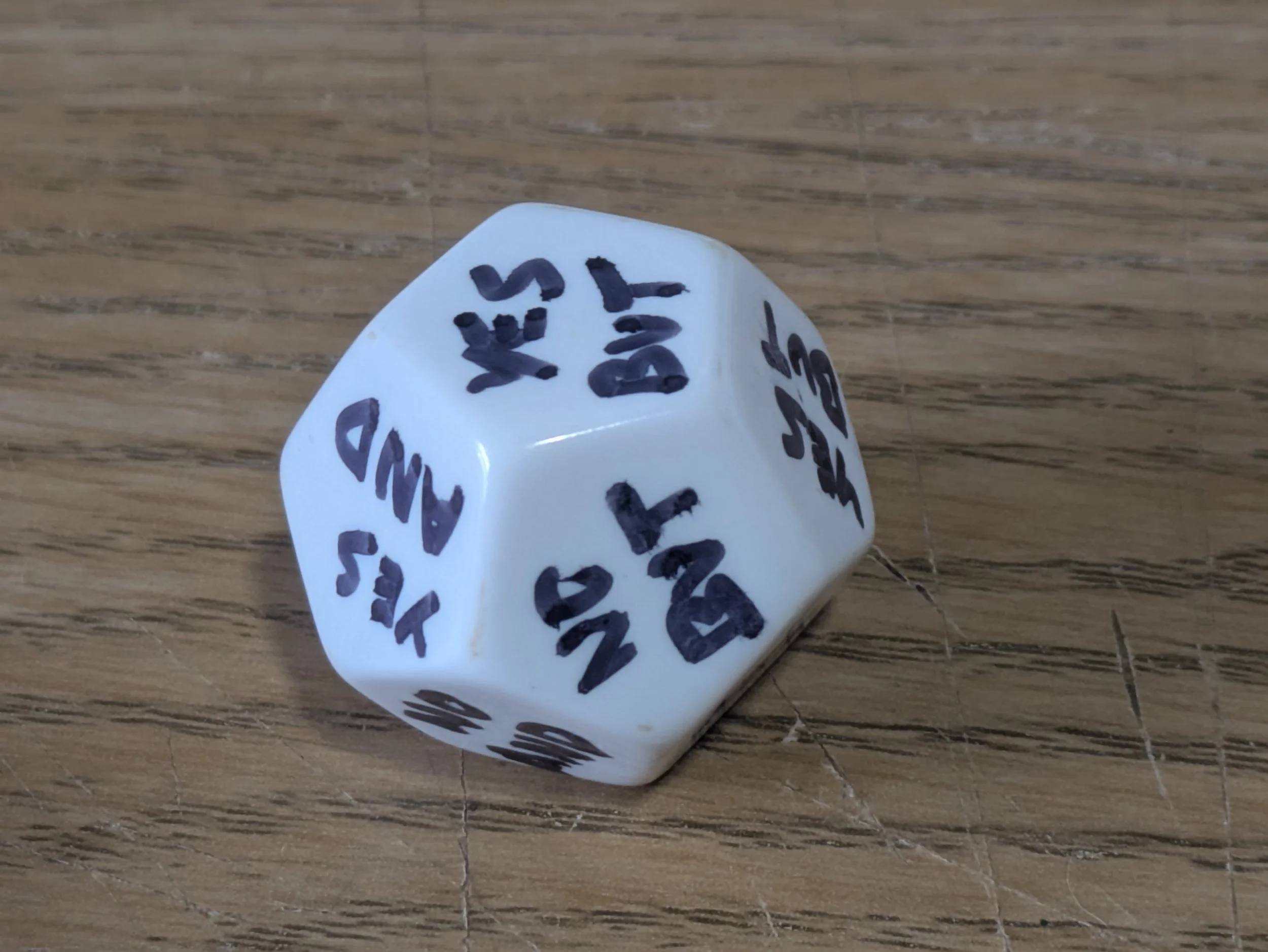A Lesson From Solo RPG Gamers? Oracle Dice
By JimmiWazEre
Opinionated tabletop gaming chap who’s been really busy this week writing a report on the merits of workplace coaching.
TL;DR:
Solo RPG players use oracle dice to improvise and guide play. GMs can borrow the same tool to resolve tricky calls, avoid bias, and keep the game moving with unexpected twists.
Introduction
Just a quick one this week guys, I’m running on fumes writing a report on the merits of workplace coaching to earn a level 5 qualification. 1500 words to go!
OK, so, if you’re a subscriber to the Mailer of Many Things (if not, fear not! You can fix this egregious error) you’ve seen me advocate a few videos from the Man Alone Youtube channel. Solo Roleplaying interests me for a couple of reasons. Yeah, first up is the obvious one - it means you can play RPGs even when all your mates are unavailable.
That’s a good enough reason by itself, but I’ve got a theory about another. I reckon that gaining aptitude with solo RPGs will make you a better GM.
Hear Me Out
A key component of GMing RPGs, especially the OSR ones I favour, is the ability to take prompts and then improvise a situation from them. Typically, people find this daunting, especially early on in their GM careers. The good news is that it is definitely a learned skill, and you can get better with practice. Solo roleplayers are doing this all the time - typically a solo RPG isn’t an event based campaign, it’s something that’s largely improvised on the spot with the help of oracle and spark tables, that makes solo games a great low-stakes practice for improving your improvisation skills.
Hold on to that a moment, we’ll come back to it because here’s something else I want you to consider:
As a GM, do you ever find yourself called upon to make a call, and for whatever reason - you struggle? For me it’s when it’s a particularly close call, and I’m acutely concerned/aware that my own GM conflict of interest might be swaying my decision one way or another.
Oracle Dice
OK. Here’s the point: have you tried incorporating an oracle dice into your regular GMing? I figure that next time I face one of the those awkward situations, I can crack this little badger out and let it make the decision for me, and then I can just riff off the result.
It couldn’t be easier to make: Simply pick up a cheap blank d12 online and then in accordance with the idea that you should say ‘yes’ more than ‘no’, I proceeded to weight the outcomes by labelling each side with a black sharpie accordingly:
| Value | # |
| YES AND | 1 |
| YES | 3 |
| YES BUT | 3 |
| NO BUT | 2 |
| NO | 2 |
| NO AND | 1 |
I’ve pretty much just pulled these weightings out of thin air, but the nice thing is that sharpie markers can be removed with light chemicals, and I can reassign the values if I decide to make changes.
For the uninitiated, the AND modifiers amplify the YES or NO result, and the BUT modifiers add a twist which is positive or negative - whatever is the opposite of the YES/NO result. So for example, “YES BUT” might mean that the pirate captain will sail you to the island, but you need to help him quell a mutiny first.
Conclusion
I’ve not tried this out yet because I’ve just finished up with running my last campaign, but I’ll definitely be giving this a go in my next game. I’d appreciate your thoughts on if you think I’ve got the weightings right? Do you think that an oracle dice like this is a useful tool? Answers in the comments please.
Hey, thanks for reading - you’re good people. If you’ve enjoyed this, it’d be great if you could share it on your socials - it really helps me out and costs you nothing! If you’re super into it and want to make sure you catch more of my content, subscribe to my free monthly Mailer of Many Things newsletter - it really makes a huge difference, and helps me keep this thing running!
Catch you laters, alligators.







I’ve bit the bullet and and I’ve agreed to run a couple of one shots for Pirate Borg. One’s for my regular group, and the other is a group of people I met in a local online community. This is all well and good, but it got me thinking more about Pirate Borg lore.